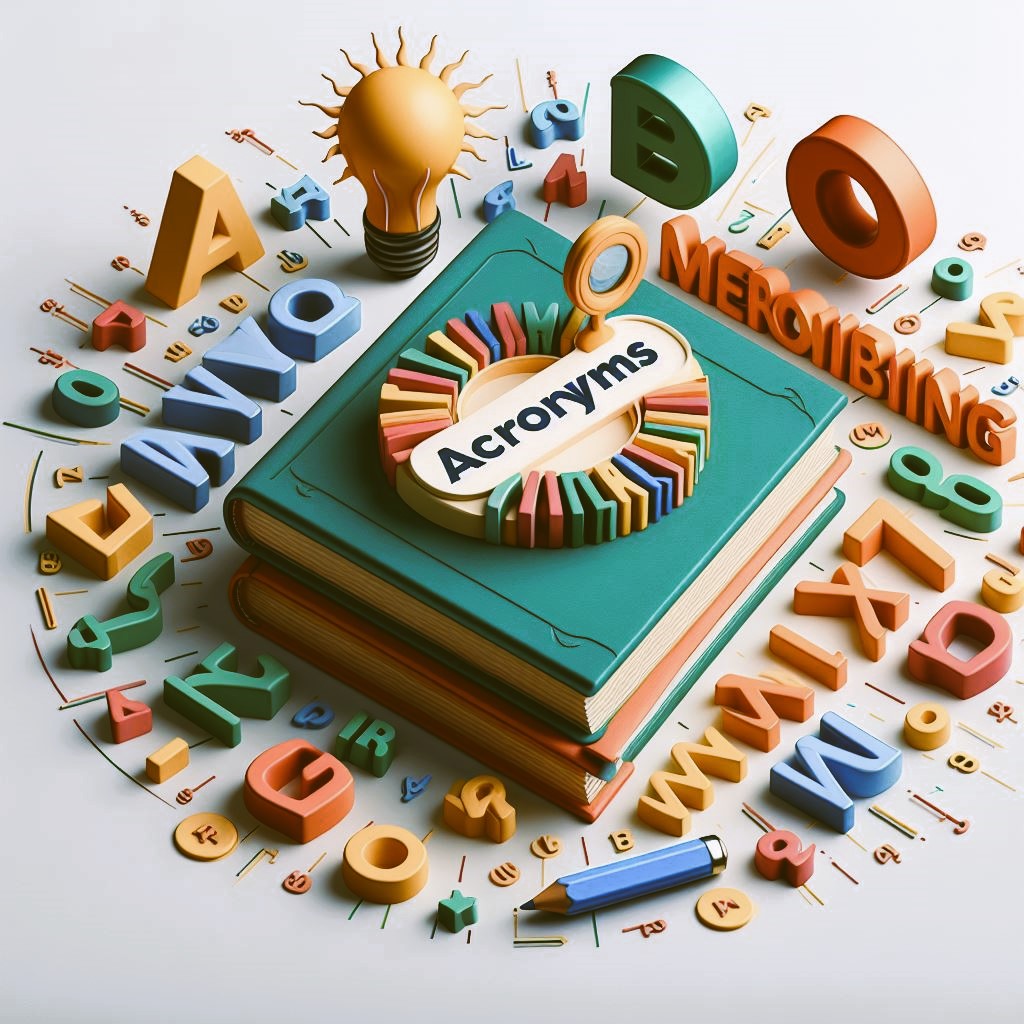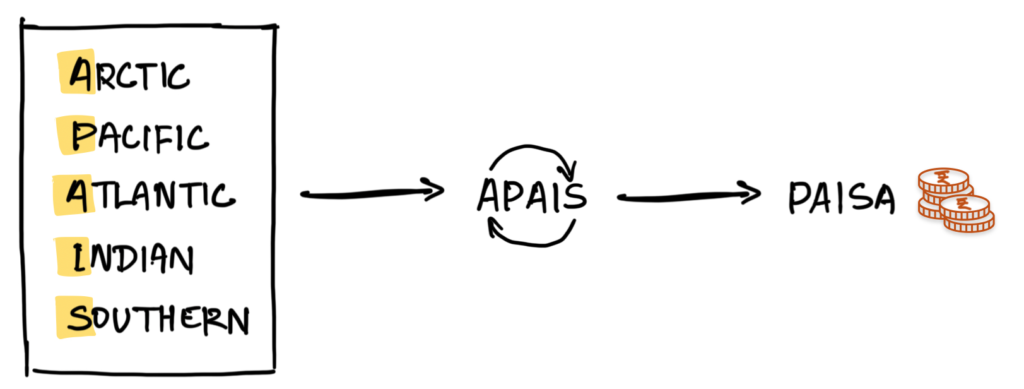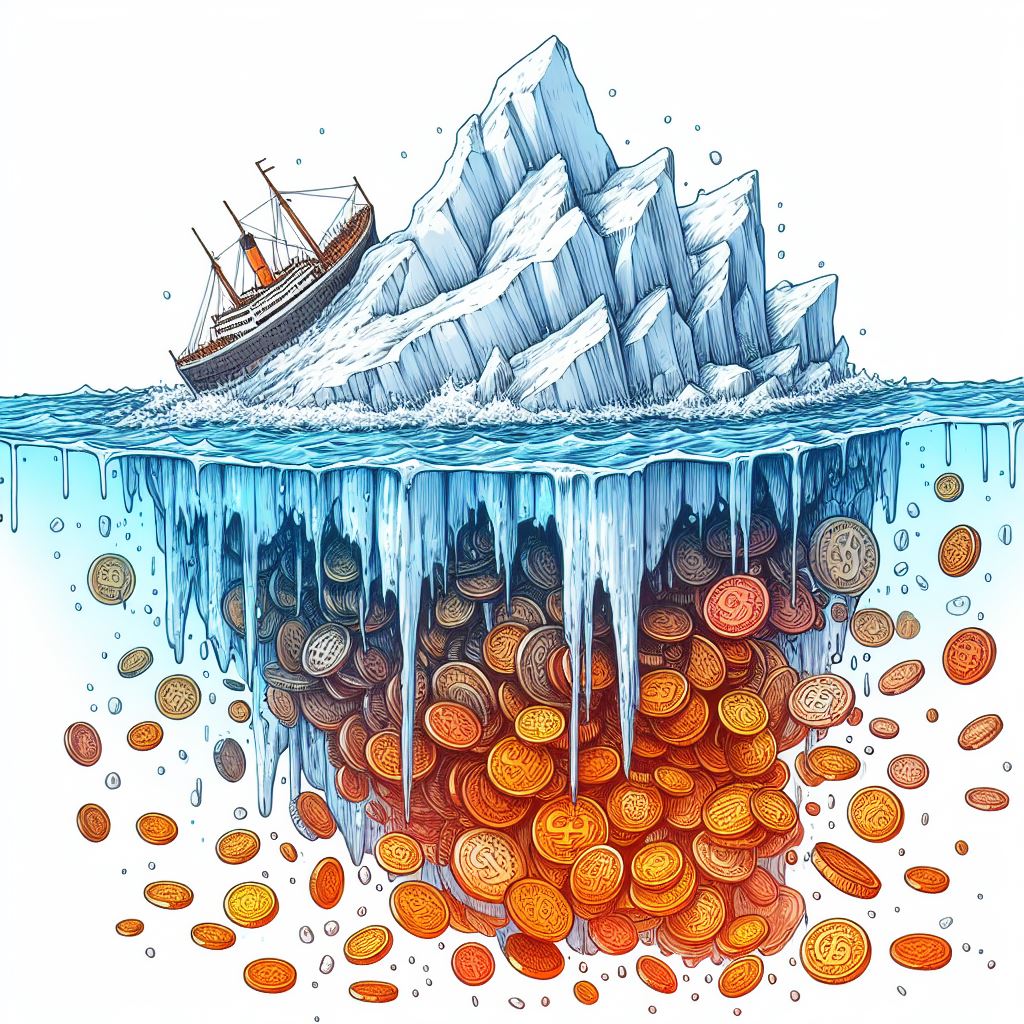Table of Contents

Ever wondered why its easy to remember terms like ISRO, NASA etc? It’s not just the space institutions; it’s the power of acronyms. These terms condense a series of words into a single, easy-to-recall abbreviation.
In this post, we’re exploring the secrets of acronyms — a potent tool for augmenting your memory and turning a random list of words into a memorable masterpiece. We’ll not only uncover the science behind acronyms but also equip you with practical tips to effectively use it in your studies.
1 What is an Acronym? 🤔
An acronym is a new word formed by taking first letter of each word in a phrase. For example, VIBGYOR, BODMAS etc. I am sure you are familiar with these two from your upper primary or middle school days. Here,
- VIBGYOR indicates colour spectrum. It is formed by combining first letters of colour names – Violate, Indigo, Blue, Green, Yellow, Orange and Red.
- BODMAS indicates the order of math operations – Bracket, Order of power, Division, Multiplication, Addition and Subtraction.
Such a single word (VIBGYOR) reveals a lot of information that you otherwise would not be able to remember. It is a great way to memorise and is particularly useful when you need to remember long strings of items or elements in a specific order. It does not, at all, mean that you can’t use acronyms for unordered list.
2 How Does it Work? 🧠
Creating an acronym is like crafting your own secret code for recalling the information.
When you create one, your mind remembers the context in which the word is formed. When you see the acronym and its letters, your brain automatically activates word database of the relevant topic, and tries to decode it into its original words or phrases.
Its quite amazing that our mind is smart enough to differentiate the context, and it points to the original word from the relevant context or topic only. Let me explain what I mean.
Consider the examples above – VIBGYOR and BODMAS.
First, after seeing VIBGYOR, your mind will start decoding each letter for its corresponding colour. Whereas for BODMAS, set of mathematical operations will be explored.
Second, both have letter ‘B’ in them. When you recall VIBGYOR, your mind picks the original word ‘Blue’ only, not the word ‘Bracket’ from other topic or context. The difference here is – VIBGYOR is created in the context of colours while BODMAS in context of Maths operations. Your mind does not confuse with these two and does an excellent job in differentiating without you even realising it.
3 How to Create Supercharged Acronyms? 🚀
From above discussion, you already know how to create an acronym. Just combine the first letters of all words from the phrase you want to memorise.
But, there can be different combinations of those letters, so which one to choose? Following are some of the points you should keep in mind for creating an effective acronym.
- Make it Engaging and meaningful: Chose a combination/pattern which is engaging for you. Our brain loves patterns, so check which pattern suits you.
- Keep it Relevant: If the word (acronym) is relevant to your topic, it will make more sense to you and will be more effective. Though it may not be possible always, you should try whenever it’s viable.
- Be creative: Use your creativity and add a some quick anecdote or story or event. It will make it personal to you, meaning it will stick to brain longer.
Lets apply above pointers to an example:
Consider the oceans of the world – Arctic, Pacific, Atlantic, Indian and Southern Ocean.
Acronym for this will be – APAIS. But it does not make much sense to us. Let’s rearrange the letters to – PAISA. You see what happened? This PAISA is a familiar word — unit for 1/100th of a Rupee. It’s more meaningful than APAIS, and will stick to your mind easily. Moreover, PAISA also preserves the order of the Oceans from largest to smallest — Pacific, Atlantic, Indian, Southern and Arctic.

Now to make it more effective, you can add a quick one-liner story to make it more relevant to your topic.
Imagine –
‘A melting iceberg uncovering trillions of hidden PAISA (Coins), and these coins are getting submerged into ocean and causing the sea-level to rise.’

This story creates a link between PAISA and Ocean so your mind will remember it. Make the story as funny or unbelievable as you wish. The more absurd the story, the better. This highlights the importance of making stories for memorising which you have already learned from my previous post – How to memorise Abstract or Random Words.
4 A Note to Readers. 🗒
Many use such acronyms for various topics in their studies and internet is full of it. One person creates one and passes it on to others. It may work for some people and for some particular topic, but not always. You should try yourself. Force your mind to go through this exercise and after some time it will become natural to you.
Acronyms works best when its personalised – meaning it is created by you based on your own knowledge database and experiences. If created this way, It will make more sense to you. The more personal it is, the longer it will stick to your mind.
5 Where to apply Acronyms for Memorizing? ✅
There are immense possibilities for utilising this memory device. Whether it’s historical event timelines, geographical features, principals or theories, or lists of terms, acronyms can be very powerful tool for you.
Let’s explore some of the areas where you can apply this method:
- Countries of any international/regional groupings
- Rivers in a particular order (e.g. river length in increasing or decreasing order)
- Oceans, important Seas (as discussed above)
- States/Regions in ascending/descending order of population, total area, literacy rate etc.
- and so on…
Don’t restrict yourself only to above listed areas. Once you start practicing, more ideas will keep popping up in your mind.
Possibility is endless. Now, it’s your turn!
See you in the next one 👋.


I just could not leave your web site before suggesting that I really enjoyed the standard information a person supply to your visitors Is gonna be again steadily in order to check up on new posts
Thank you for your valuable feedback. I’m glad you found this post engaging. Stay tuned for more content.